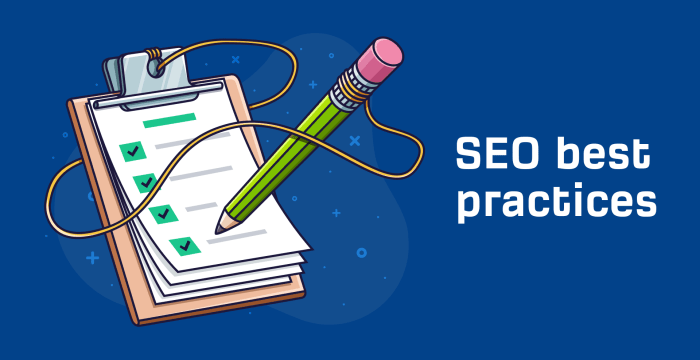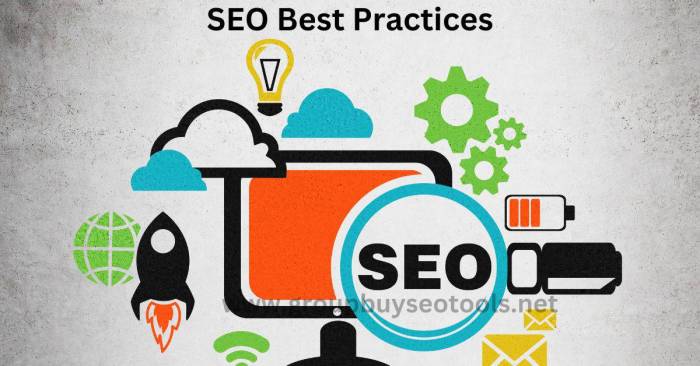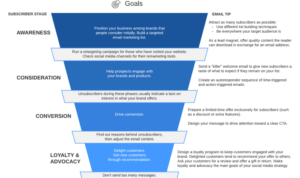SEO Best Practices – Best Practices kickstart the journey to online success, revealing the secrets to boosting visibility and ranking like a pro in the digital jungle.
From on-page optimization tricks to off-page strategies, this guide is your roadmap to conquering the game and dominating the search results.
Importance of Best Practices

In today’s digital landscape, adhering to best practices is essential for maximizing online visibility and reaching a wider audience. By implementing these strategies effectively, businesses can significantly improve their website traffic, search engine ranking, and overall online presence.
Impact on Website Traffic
Following best practices such as optimizing s, creating high-quality content, and improving website speed can lead to a significant increase in organic traffic. Search engines like Google prioritize websites that provide valuable and relevant content to users, resulting in higher rankings and more visibility.
Enhanced Search Engine Ranking
Implementing best practices also plays a crucial role in improving search engine ranking. By optimizing meta tags, building quality backlinks, and enhancing user experience, websites can climb higher in search results, making it easier for potential customers to discover their products or services.
Long-Term Success and Sustainability
One of the key benefits of implementing best practices is the long-term success it brings to businesses. Unlike paid advertising, which stops generating results once the budget runs out, efforts can provide sustainable results over time. By consistently following best practices and staying updated with algorithm changes, businesses can maintain their online visibility and continue to attract organic traffic.
On-Page Optimization
When it comes to on-page optimization, there are several key elements that play a crucial role in determining the ranking of your website on search engines. By optimizing meta tags, headings, and content, you can significantly improve your website’s visibility and attract more organic traffic.
Optimizing Meta Tags
Meta tags are essential for providing search engines with information about your website’s content. By optimizing meta tags, you can improve the way your website appears in search engine results pages (SERPs). Here are some techniques to optimize meta tags:
- Include relevant s in the title tag and meta description.
- Keep the title tag under 60 characters and the meta description under 160 characters.
- Use unique and descriptive meta tags for each page on your website.
- Avoid stuffing and ensure that the meta tags accurately reflect the content of the page.
Optimizing Headings
Headings play a crucial role in organizing your content and signaling its importance to search engines. By optimizing headings, you can improve the readability and -friendliness of your website. Here are some techniques to optimize headings:
- Use H1 tags for the main title of your page and organize subheadings with H2, H3, and so on.
- Incorporate relevant s in your headings to improve visibility.
- Ensure headings accurately reflect the content that follows and are structured logically.
- Avoid using headings for decorative purposes only and prioritize their informational value.
Optimizing Content
High-quality, relevant, and engaging content is key to on-page optimization. By optimizing your content, you can attract more visitors and improve your website’s ranking on search engines. Here are some techniques to optimize content:
- Create original and valuable content that addresses the needs and interests of your target audience.
- Incorporate relevant s naturally throughout your content to improve visibility.
- Use internal and external links to provide additional context and value to your content.
- Optimize images with descriptive alt text and file names to improve accessibility and .
Off-Page Optimization: SEO Best Practices

Off-page optimization refers to the actions taken outside of your website to improve its search engine rankings and visibility. This includes building links from other reputable sites, engaging in social media marketing, and other strategies to increase the authority and credibility of your website.
Link Building
Link building is a crucial aspect of off-page optimization. By acquiring links from high-quality websites relevant to your niche, you can improve your site’s authority in the eyes of search engines. This can lead to higher rankings and increased organic traffic.
- Focus on getting backlinks from reputable websites with high domain authority.
- Create valuable and shareable content that naturally attracts links from other sites.
- Avoid buying links or engaging in black hat tactics, as they can harm your site’s reputation in the long run.
Social Media Marketing
Social media marketing is another important off-page strategy. By actively engaging with your audience on platforms like Facebook, Twitter, and Instagram, you can increase brand awareness, drive traffic to your site, and improve your search engine rankings.
- Post regularly and interact with your followers to build a strong online presence.
- Share your content across different social media channels to reach a wider audience.
- Encourage social sharing by including social sharing buttons on your website and blog posts.
Enhancing Authority and Credibility, SEO Best Practices
Off-page optimization plays a significant role in enhancing your website’s authority and credibility. By earning backlinks from reputable sites and establishing a strong presence on social media, you can demonstrate to search engines that your site is a trusted source of information in your industry.
Remember, building a strong off-page strategy takes time and effort, but the results can have a lasting impact on your website’s visibility and success.
Mobile-Friendly Websites
In today’s digital age, having a mobile-friendly website is crucial for success. With the increasing number of users accessing websites on their mobile devices, search engines like Google prioritize mobile responsiveness in their ranking algorithms.
Mobile optimization not only impacts search engine rankings but also plays a significant role in enhancing user experience. A website that is not optimized for mobile devices can lead to higher bounce rates, lower user engagement, and ultimately, a drop in search engine rankings.
Importance of Mobile Responsiveness
- Improved User Experience: A mobile-friendly website offers a seamless and user-friendly experience, leading to higher engagement and longer visit durations.
- Higher Search Engine Rankings: Search engines favor mobile-friendly websites in their search results, boosting visibility and organic traffic.
- Reduced Bounce Rates: Mobile optimization helps in reducing bounce rates as users are more likely to stay on a website that is easy to navigate on their mobile devices.
Tips for Creating Mobile-Friendly Websites
- Utilize Responsive Design: Ensure your website is responsive and adjusts seamlessly to different screen sizes and devices.
- Optimize Page Speed: Improve loading times by optimizing images, minimizing redirects, and leveraging browser caching.
- Mobile-Friendly Content: Use legible fonts, concise paragraphs, and clickable CTA buttons to enhance the mobile user experience.
- Mobile Best Practices: Implement mobile techniques such as optimizing titles, meta descriptions, and heading tags for mobile users.





